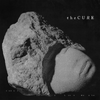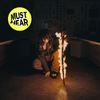The Cure’s ‘Songs of a Lost World’ Is What Happens When Goth Starts Getting Real
The legendary band has long contemplated the darker side of life. But at 65, Robert Smith is now writing some of the best songs of his career about grief, aging, and actual death.

For whatever reason—artistic stasis, over-comfort, interpersonal issues—it’s not very common for a long-lasting band to make one of their best albums almost five decades into their career. Enter: the Cure. Even Robert Smith, the eyelinered icon who wrote, produced, and arranged the entirety of Songs of a Lost World for a lineup that’s remained more or less the same since the 1990s, seems shocked by the fact that this music even exists. “It’s slightly bewildering, if I’m honest,” he said, in a nearly two-hour-long interview about the making of the album, the Cure’s first in 16 years. And that was weeks before the goth and post-punk heroes found themselves debuting at No. 4 on the Billboard album chart, between Lil Uzi Vert and Gracie Abrams—an achievement that reflects the Western cultural mood as much as anything else.
An album about grief is unfortunately perfect for 2024; between the multiple genocides, the climate emergency, the rise of authoritarianism, and a million other things, despair is really hitting right now. Who better to usher us through the process than the godfather of melancholy, the guy whose words have already helped generations of teens, depressed and skulking in our bedrooms, remember we aren’t alone? But Songs of a Lost World doesn’t play on nostalgia, even if its closest analog in the Cure’s discography is the brooding 1989 classic Disintegration. On this album, Smith shows his work: With songs written as early as 2010—when he was 51 and hitting the thicket of middle age—up to the last couple of years, when our cheeky gloom king has achieved senior citizenship, he has sloughed away the emotionally tumultuous trappings of younger life and is looking mortality straight in its face.





